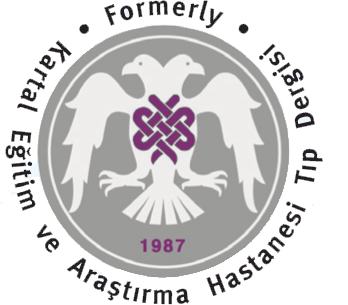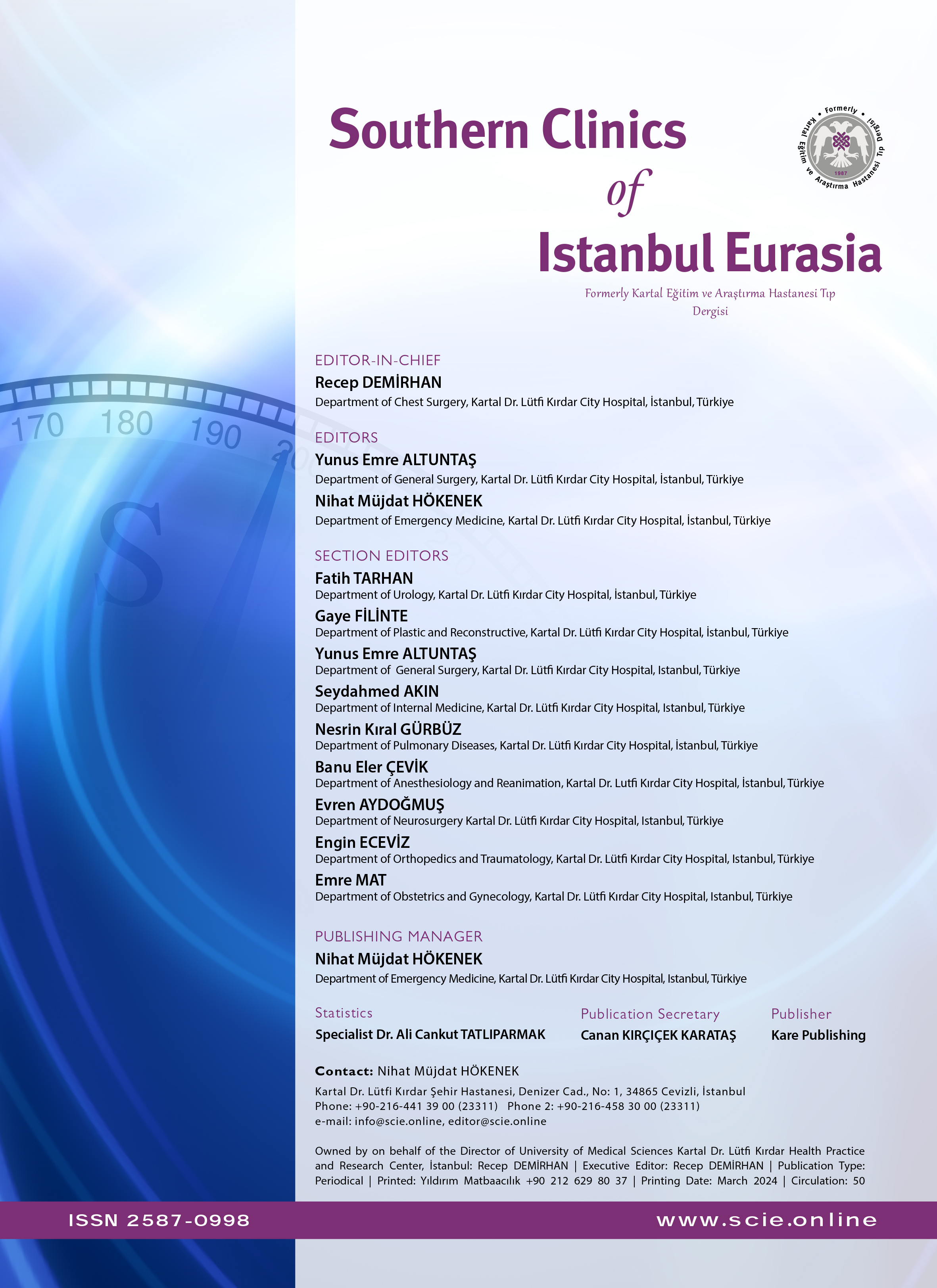Effect of Circadian Rhythm and Sleep Quality on Post-operative Pain in Patients with Spinal Anesthesia
Dilek Çay1, Gülten Arslan2, Banu Eler Çevik2, Kemal Tolga Saraçoğlu31Department of Anesthesiology and Reanimation, Ministry of Health, Pendik State Hospital, İstanbul, Türkiye2Department of Anesthesiology and Reanimation, University of Health Sciences, Kartal Dr. Lütfi Kırdar City Hospital, İstanbul, Türkiye
3Department of Anesthesiology and Reanimation, ICU§Perioperative Medicine Hazm Mebaireek General Hospital HMC, Doha, Qatar
INTRODUCTION: In our study, we aimed to investigate the effects of circadian rhythm and sleep quality on post-operative pain in patients who will undergo minor pelvic surgery under spinal anesthesia.
METHODS: The prospective study includes 60 patients, aged 1865, American Society of Anesthesiologists (ASA) I-III, whose operation was planned by general surgery and urology by applying spinal anesthesia, and divided into two groups, 30 in the morning and 30 in the afternoon, according to the time of surgery. Sleep quality with preoperative Pittsburgh Sleep Quality Index (PUKI), demographic data, preoperative and peroperative heart rate, systolic, diastolic blood pressure, peripheral oxygen saturation values, post-operative 0th, 6th, 12th, 24th h Visual Analog Scale (VAS) scores, the total amount of analgesic used in the first 24 h postoperatively, and time to first and second analgesic needs were recorded.
RESULTS: It was determined that 24 (40%) of the patients had good sleep quality according to PUKI. When the patients were grouped as those who had surgery in the morning and afternoon, no significant difference was found between the groups in terms of age, gender, ASA, and sleep quality. When the correlation between PUKI scores and VAS scores was examined, no correlation was observed. In the morning group, VAS0 (p=0.005), VAS6 (p<0.001), and VAS24 (p=0.04) values were lower, post-operative analgesic requirement was less, and the time to first and second analgesic requirement was longer. It was found that there was no significant difference in terms of quality.
DISCUSSION AND CONCLUSION: As a result, it was concluded that if the anesthetic agents we use are applied at selected times, the treatments can be more effective, the drugs can be arranged according to the application hours to optimize the effectiveness of the agents and perhaps reduce their toxic effects, and that more comprehensive studies, especially including night studies, should be done.
Spinal Anestezi Uygulanan Hastalarda Sirkadiyen Ritim ve Uyku Kalitesinin Postoperatif Ağrı Üzerine Etkisi
Dilek Çay1, Gülten Arslan2, Banu Eler Çevik2, Kemal Tolga Saraçoğlu31Sağlık Bakanlığı Pendik Devlet Hastanesi, Anesteziyoloji ve Reanimasyon Anabilim Dalı, İstanbul, Türkiye2Sağlık Bilimleri Üniversitesi, Kartal Dr Lütfi Kırdar Şehir Hastanesi, Anesteziyoloji ve Reanimasyon Anabilim Dalı, İstanbul, Türkiye
3ICU§Perioperative Medicine Hazm Mebaireek Genel Hastanesi, Anesteziyoloji ve Reanimasyon Anabilim Dalı, Doha, Katar
GİRİŞ ve AMAÇ: Çalışmamızda spinal anestezi altında minör pelvik cerrahi geçirecek hastalarda sirkadiyen ritim ve uyku kalitesinin postoperatif ağrı üzerine etkisini araştırmayı amaçladık.
YÖNTEM ve GEREÇLER: Prospektif çalışmaya genel cerrahi ve üroloji tarafından spinal anestezi uygulanarak operasyonu planlanan 18-65 yaş arası ASA I-III 60 hasta dahil edildi ve cerrahi zamanına göre sabah 30, öğleden sonra 30 hasta olmak üzere iki gruba ayrıldı. Preoperatif Pittsburgh Uyku Kalitesi İndeksi (PUKİ) ile uyku kalitesi, demografik veriler, ameliyat öncesi ve ameliyat sırasında kalp hızı, sistolik, diyastolik kan basıncı, periferik oksijen satürasyon değerleri, ameliyat sonrası 0., 6., 12., 24. saat Vizüel Analog Skala (VAS), postoperatif ilk 24 saatte kullanılan toplam analjezik miktarı, birinci ve ikinci analjezik ihtiyacına kadar geçen süre kaydedildi.
BULGULAR: Hastaların 24ünün (%40) PUKİye göre uyku kalitesinin iyi olduğu belirlendi. Hastalar sabah ve öğleden sonra ameliyat olanlar olarak gruplandırıldığında gruplar arasında yaş, cinsiyet, ASA ve uyku kalitesi açısından anlamlı fark bulunmadı. PUKI skorları ile VAS skorları arasındaki korelasyon incelendiğinde herhangi bir korelasyon gözlenmedi. Sabah grubunda VAS0 (p=0.005), VAS6 (p<0.001) ve VAS24 (p=0.04) değerleri daha düşük, postoperatif analjezik ihtiyacı daha az, birinci ve ikinci analjezik ihtiyacına kadar geçen süre daha uzun bulundu. Kalite açısından anlamlı bir fark olmadığı belirlendi.
TARTIŞMA ve SONUÇ: Sonuç olarak, kullandığımız anestezik ajanların seçilen zamanlarda uygulanması durumunda tedavilerin daha etkili olabileceği, ajanların etkinliğini optimize etmek ve belki de etkilerini toksik etkilerini azaltmak için ilaçların uygulama saatlerine göre düzenlenebileceği ve özellikle gece çalışmalarını içeren daha kapsamlı çalışmaların yapılması gerektiği kanısına varıldı.
Corresponding Author: Gülten Arslan, Türkiye
Manuscript Language: English



















